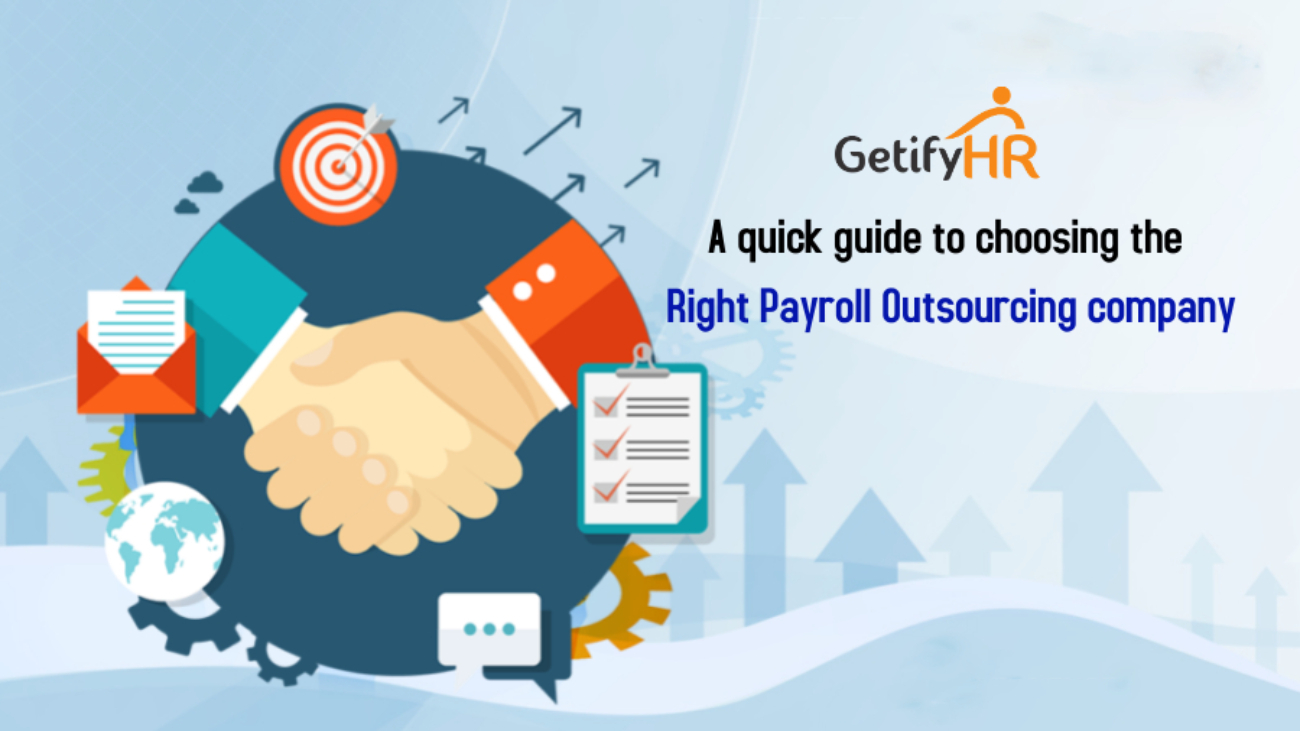Introduction
Businesses should focus fully on their core activity and what they are good at and leave other functions to experts. Payroll is one of those functions that deserve the assistance of experts.
Payroll processing is not only a vital function but is also a highly complex operation and when managed perfectly will save the company a lot of time, money, and manpower. Outsourcing this vital operation to a reliable service provider is the best solution. Importantly, it will keep you on the right side of the law as it will enable you to stay compliant with the statutory rules and regulations.
The difficult part is to choose the right partner to handle the payroll operations. You should first decide whether you want to outsource the payroll module alone or also outsource to someone who can also handle the HR module. Ideally, it is advisable to outsource to a company that can handle both payroll and HR requirements as it will help you to handle month-end operations without much stress. Statistics show that one out of three employers has been penalized for mistakes in the payroll and for being non-compliant. This guide will enable you to ask the right questions and help you to make the right choice.
What do you need to decide first and foremost?
Before we jump into the aspect of choosing the outsourcer, you have to be very clear about what your requirements are.
– First, identify your company’s needs very clearly.
– Decide on your plans for future developments.
– Decide on how much funds you can allocate for this operation
– Be clear about the number of employees whose payroll will be handled by the service provider.
– List out the Statutory Compliant rules and regulations that you have to comply with.
– Whether future staff/employee recruitments will also be handled by the outsourcer.
– Whether you require a fully functional Employee Self Service portal to track time and attendance.
Tips to choose the right service provider
The next step is to choose the Payroll Service Provider that best suits your requirements. Here are a few points that you have to look for in an outsourcing partner before you hand over this vital operation.
- Choose an outsourcer who is efficient in handling Payroll and HR management.
- Verify their Experience.
- Identify the Specializations that they handle.
- Software features that they offer and the technology that they use.
- Who takes responsibility for mistakes?
- Flexibility in information transfer.
- Whether the vital data is secure?
- Their Service commitment.
- Pricing of their Services.
- Their ability to handle Statutory Rules and Regulations.
Let us now delve deeper into these points to understand their importance and why we should have the right answers before making our choice.
1. Choose an outsourcer who can handle both Payroll and HR management:
This is the ideal choice because you will be able to free a lot of time for your HR team to handle the more important core business activities. On the other hand, if you outsource these activities to two different companies you may not be able to function smoothly. A sound choice made here would enable you to handle these issues without much stress and you will find that the operations work seamlessly without any hiccups.
2. Verify their Experience:
This is very important as this industry matures with experience, the more the experience, the better the service. You can verify with the clients of the service providers about their experience before making your choice.
3. Identify the Specialization that they handle:
Identify whether they can handle the Payroll and HR operations of the core sector that you handle. Every industry has its complexity when it comes to Payroll and HR management, therefore handing over this operation to someone who is not specialized in this activity will only create complications that would upset the entire working of the organization.
4. Software features that they offer and the technology they use:
The use of advanced technology has vastly improved the performance of the applications that are now on offer in the industry. Look for a service provider who is using cloud technology to store data as this would lessen your burden of equipping yourself with more advanced hardware.
Ensure that the outsourcer has the necessary technical skills to upgrade and customize the application as and when required. Verify the usability of the reports and whether they conform to industry standards. Features like the Employee Self Service (ESS) module that the employee can access are important in today’s working atmosphere.
5. Responsibility for mistakes:
You have to determine who will take responsibility for the mistakes in reporting and the subsequent penalties that the company has to bear.
6. Flexibility in information transfer:
The Service Provider should be in a position to provide flexibility in the way the information gets transferred. You should be able to print the reports, or post them to the net or transmit them in the form of a data file. They should be able to find a solution when there is some break in transmission.
7. Whether the data is secure:
Data security is a vital factor in outsourcing. Your data is highly sensitive and you must verify that it is securely encrypted and has full control over who can access it.
8. Service:
Timely service is vital for a process of this nature. Verify that the outsourcer is in a position to provide service always and not only on the days that the payroll is generated.
9. Pricing of the Service:
Understand fully the cost for the package and see that all the features that you require are included in the entire package. Before you sign on the dotted line verify these facts. Any misunderstanding here will create a lot of unpleasantness later.
10. Ability to handle Statutory Rules and Regulations:
This is a highly critical area in any business and any weakness in one’s ability to comply with the government laws will bring greater problems by way of penalties that could be in the form of fines or some cases imprisonment. Make sure that the service provider is efficient in handling statutory compliant issues and is well prepared to handle changes as and when they occur.
Conclusion
Outsourcing your Payroll and HR management operations to an efficient Service Provider is a choice that makes the entire business run easier, quicker, and more efficiently. Since most outsourcers provide a package that integrates Payroll operations and HR Management, you can rest assured of a seamlessly running package that provides all information as and when you require them with greater accuracy. This not only saves you time and money but will also enable your HR team to concentrate more on core activities rather than on the mundane payroll activities. This will enable the entire workforce to perform with greater efficiency and in the long run, will bring greater growth.
GetifyHR is one of the top-rated payroll outsourcing companies in the industry and has over the years built a large number of satisfied clientele. We have the expertise to cater to a wide array of business needs and that could transfer to greater growth to the client. Whether your business is big or small, an association with an experienced and committed payroll outsourcing service provider will bring about a quantitative change in its growth. The tips given here are the result of serious research and we are sure you will be able to make the right choice in your search for a payroll outsourcing company.




